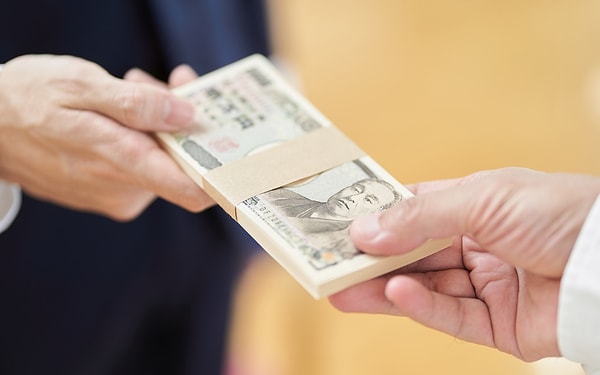10 Interesting Manners You Probably Haven't Heard of in Japan
Japan, while appearing calm and orderly from the outside, harbors numerous 'unwritten' rules in daily life. The locals have internalized these rules, but for visitors, things aren't as straightforward. Some might seem like simple etiquette, but at times, even being overly polite can be considered a faux pas.
Let's delve into what these are...
Handing Over Cash is Considered Rude

In Japan, money is referred to as 'okane,' with the prefix 'o' denoting respect. This implies that money is a symbol that should be treated with care. Consequently, when making cash payments in stores or restaurants, it is customary to place the money on a small tray on the counter, rather than handing it directly to the cashier.
Public Displays of Excessive Affection are Frowned Upon
Holding hands is generally not an issue, but hugging, kissing, or being in close contact in a crowd is not the norm in Japan. This practice stems more from the belief in keeping one's private life separate from the public sphere, rather than being a sign of disrespect.
It's Mandatory to Wash Before Entering the Bathroom

Taking a bath in Japan is not merely a cleansing routine, but rather a ritual. In places like onsens (hot springs) or sentos (public baths), it is mandatory to thoroughly wash and rinse with soap before immersing oneself in the water. The water in the tub is solely for relaxation, not for cleaning oneself.
Small towels can be used to cover one's body, but they should never be submerged in the water. They are typically placed on top of the head or left on the side.
Tipping Is Considered Rude
In Japan, receiving good service is already an expectation. Therefore, tipping can be perceived as if you're trying to 'buy' the employee. This can especially cause discomfort in traditional restaurants or hotels.
Even though some young employees in tourist areas might accept tips, the general rule has not changed.
Not Queuing Up is a Serious Breach of Etiquette

In Japan, order is the foundation of everyday life. Whether you're on the subway or in a line at a cafe, everyone patiently waits their turn. In Tokyo, pedestrians generally stand on the left side of the stairs.
Breaking the line, cutting in, or pushing forward in a crowd is considered 'meiwaku', which translates to disruptive behavior.
Passing Food with Chopsticks is Considered Unlucky
Japanese culture takes dining etiquette very seriously. In particular, two people passing food to each other with chopsticks is considered taboo, as it recalls a practice done at funeral ceremonies.
Instead, if you wish to share food, it's appropriate to pass the plate to the other person or serve it with the clean end of your chopsticks.
Using Strong Perfume Can Cause Discomfort

In Japan, cleanliness is synonymous with being odorless. The ideal is not to smell good, but to 'leave no scent at all'. Perfume, deodorant or strongly scented products can potentially disturb those around you on public transportation.
Some companies even have rules such as a 'perfume ban' for their employees.
Blowing Your Nose in Public is Considered Rude
While blowing your nose might be seen as a sign of hygiene in Western culture, in Japan, it signifies a lack of self-control. Particularly in quiet environments, it's considered a major faux pas to do so.
People usually sniffle quietly and wait until they find an appropriate place. If you have a runny nose, the most proper behavior would be to go to the restroom and handle it discreetly.
Addressing Someone Incorrectly Can Be Seen as Rude

In Japanese, suffixes like 'san', 'sensei', or 'sama' that are added to the end of names serve as a mark of respect. Addressing someone directly by their name (yobisute) is considered insincere or overly casual.
However, being excessively respectful can also create an artificial distance. Striking a balance is one of the most delicate aspects of Japanese culture.
Holding Objects with One Hand is Seen as Disrespectful
In Japan, it's a sign of respect to use both hands when giving someone a card, a gift, or a receipt. Handing something over with just one hand is perceived as careless. This rule is particularly important to heed in business environments.
Keşfet ile ziyaret ettiğin tüm kategorileri tek akışta gör!

Send Comment